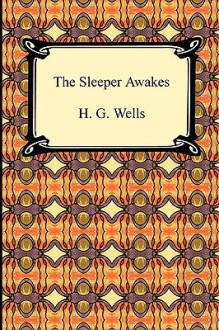
For some reason when people think of Plato and government we seem to automatically jump to the though 'gee, what a wonderful idea' as if a Platonic government would actually be a good thing. The question that I raise is what if it isn't? What if this form of government that Plato outlines actually isn't all that good, or moreso what if it doesn't work. In a way it is a bit like the western reaction to Buddhism. For some reason the young and hip seem to love Buddhism, believing that it is the one religion that you can do whatever you like, but as long as you treat other people okay then everything will be all right. However, when they delve into it (such as offering to volunteer at the Tiger Temple in Thailand) they pretty quickly discover that Buddhism is not all that it is cracked up to be – what no sex!?! No alcohol !?! Okay, I've known Buddhists that have breached both of those restrictions – at the same time – however they probably fall into the category of 'nominal'.
As for Plato we seem to have this idea that because he is this really famous, and apparently really smart, philosopher then any form of government that he comes up with has to be good, and has to work. Well, my argument is what if it turns out that this wonderful form of government sort of turns out to look a little like this:

The thing is that the more I think about Plato's political theories the more I realise that the freedoms that we enjoy under our modern democracies will be basically non-existent. For instance, you know how when you are in school you get to choose what you want to study at University, or even if you go to university – well, that won't happen in Plato's realm – your career path will be chosen right from the word go, and if you don't like it then tough, deal with it because the state that Plato envisages is a perfect, and efficient, state, which basically means that human free will sort of takes a back seat because free will is actually the thing that causes half the problems that we face today. Oh, and you know that idea that is known as the family - well we have none of that in Plato's realm because families are bad since they work to undermine the perfect nature of the society (or was that 1984: I don't know, but I recently saw it in London, and this book was so long and, well, dull that I may have got the two mixed up).
Another interesting thing about Plato's state is that it happens to be communist – it is against the law to have excess wealth, and if you have excess wealth well, at best it simply gets confiscated, at worse you are severely punished. Oh, and don't think that you can get around it by hiding it in another form of currency because he has that area covered as well. Oh, and let us talk about punishment because in Plato's mind nobody does wrong willingly – the only reason they do bad things is because they don't actually realise that they are doing bad things – even though we have free will this free will isn't actually free because we only do things out of ignorance, and if we weren't ignorant then we wouldn't do these things. However, Plato seems to acknowledge that people will do bad things even if they are told that they are bad. Well, it seems that in Plato's mind they have some sort of inherent defect so we might as well kill them. Yep, you heard me right, Plato is a big fan of the death penalty – if you are criminal then, well, there is no way that you are going to change so off with your head (or whatever way they decided that they will kill you).
Another rather interesting thing that I noticed in this particular edition was that the editor, and I assume translator, had a go at us moderns because we look down on slavery, and because we look down on slavery then we consider the ancient Greeks to be somewhat barbaric. Well, it is probably a good thing that we consider slavery to be barbaric because as far as I am concerned we really shouldn't be owning people and forcing people to do things against their will. However, those who look down on the Greeks because of slavery really don't understand the world in which we live – we have a form of slavery – it is called employment. Okay, we can leave our job whenever we like, but when we have a mortgage, and countless other debts, then the ability to walk away from our job really doesn't exist. While our employer may not be the slave master, the banks certainly are because if you don't pay back those debts they will let you know about it.
Which brings me to an interesting point about bankers – being a Christian I have heard how a number of people have given up a promising career in banking to become ministers of religion. Most of the time I just let it go over my head however I suddenly realised that banking is hardly what you would call an ethical profession. Okay, there isn't anything intrinsically wrong with banking, just as there is nothing intrinsically wrong with law, accounting, or even politics. However, I would hardly call the lot who brought about the global financial crisis paragons of virtue. Moreso, I have never heard anybody say that somebody has given up a promising career in plumbing to become a minister of religion (despite the fact that you can make some pretty decent money as a plumber) even though plumbing is actually a lot more honest than banking. Okay, there was one minister that I knew indicated that he didn't leave the legal profession for some holy and righteous reason, but rather because his conscience really couldn't handle the rubbish that he had to deal with. Actually, the more I think about it – bankers, fund managers, and lawyers as ministers of religions – I think I'd rather go with the plumber.
As for this book, well all I can say is don't bother – it really isn't all that great. In fact it is sort of half philosophy half idealistic legal text. In fact the translator writes it as if it were a piece of legislation, or at least the parts appeared to have been like that rather confusing stuff that politicians get paid ridiculous amounts of money to argue over. Sure, Plato may have some good ideas, however what I discovered was that these good ideas were few and far between and in reality were buried deep within what appears to be little more than a totalitarian state. Sure, Plato says that the military (otherwise known as the Guardians) and the rulers were to behave in a certain way but seriously, these are humans that we are talking about – as the saying goes power corrupts and absolute power corrupts absolutely. As for the Greeks being less sophisticated that we are – all I can say is that I don't think so – apparently our lust for technology and luxuries have pushed us past the point of no return – we have destroyed our environment and the global financial crises has resulted in a greater discrepancy between the haves and and the have nots that it feels as if we are returning to the middle ages, that is if we don't nuke ourselves over Syria first.

 Log in with Facebook
Log in with Facebook 













